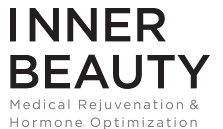What are signs of hormone imbalance in teenage females?
Puberty brings about many changes. Hormone fluctuations are common as young girls experience their periods every month. So, while mood swings and cramps become the norm, sometimes there are signs of a lingering hormone imbalance. What are signs of hormone imbalance in teenage females?
There are 3 Main Signs of Hormone Imbalance in Teenage Girls
1. Heavy Menstrual Bleeding
Heavy menstrual bleeding is a sign of hormone imbalance in teenage females. If your daughter has heavier than usual bleeding during her menstrual period this could be behind it. Also known as Menorrhagia, very heavy menstrual bleeding can also be a sign of a more serious condition. Two examples are clotting disorders and thyroid problems. But, what exactly constitutes “heavy bleeding?” Keep communication open. Be sure to know if she bleeds through more than 1 pad per hour for several hours in a day or if her period lasts longer than 7 days. If this happens, be sure to get her pediatrician on the line. They can rule out those more serious conditions. From there, they’ll determine if hormone imbalance is the root of the problem.
2. Irregular Menstrual Periods
When your daughter has her period for the very first time it’s normal to have irregularities. However, the cycle should fall into a regular pattern within a few months. There are many reasons for irregular periods. But, if she is still experiencing irregularity 2-3 years after the onset of her first period this could signal hormone imbalance. Also, if she doesn’t have a period for 6 months or more it could be hormone imbalance. Keep in mind teens are busy and get distracted so it may be hard for even them to keep track. Check out these helpful tools that make it easier so you both stay aware of her health.
In addition to hormone imbalance other causes of irregular or absence of a period are:
- Pregnancy
- Stress
- An eating disorder such as Anorexia
- Excess weight loss or gain
With that, be sure to call her doctor if she misses her period for several months.
3. Excess Facial Hair
Most females have a little facial hair especially on the upper lip and chin area. We all carry levels of testosterone in addition to other important hormones. But, if your daughter has excess facial hair in these areas it can mean higher than healthy levels of testosterone. This is known as hirsutism. Hirsutism is common in polycystic ovary syndrome or PCOS.
More on PCOS
PCOS is caused by hormone imbalance and occurs in up to 10% of females of childbearing age. Signs and symptoms of PCOS are both internal and external. For this reason, it causes worry in many young women. It affects their self-confidence and self-esteem. PCOS is treatable but it’s essential to be on the lookout for the following in your daughter.
Here is a List of the 6 Most Common Signs of PCOS.
Females with This Condition Have One or More.
- Acanthosis Nigricans: patches of dark skin on the back of the neck or underarms
- Periods that are irregular and come every few months or not at all
- Hirsutism: excess facial hair
- Tough-to-treat acne
- Stubborn weight gain/loss
- Impaired fertility
A Few Less Common Signs of PCOS to be Aware of Include:
- Skin tags on the back of the neck or underarms
- Thinning hair
- Health issues: high cholesterol, prediabetes and high blood pressure
Stay in the know to help your daughter feel her best. Still have questions? Inner Beauty is here to help and educate. Give us a call today.

